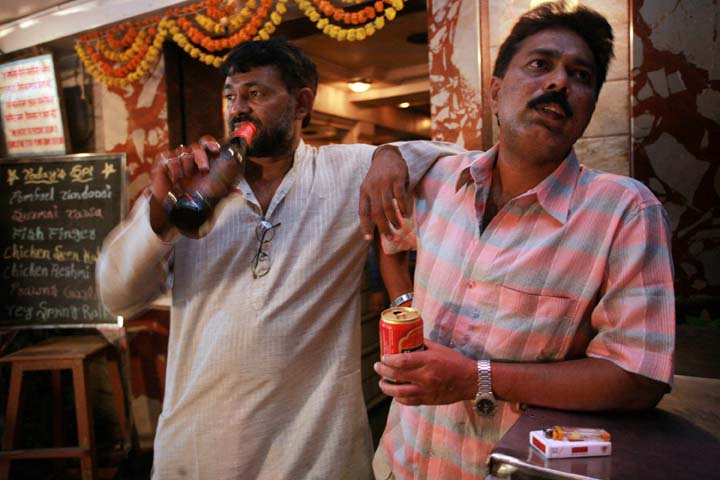Glass half full or half empty for SABMiller
We have been saying for ages that India is not a single market. It’s a cluster of 28 states and seven union territories, suffering from chronic over-regulation and under-governance. Although SABMiller, the country’s number two brewer, has done the only feasible thing and tackled the huge market on a state-by-state basis, it has nevertheless seen its market share drop to little above 20 percent, down from 35 percent in 2008, the high-brow newspaper The Times of India reported on 7 February 2011. SABMiller, with a portfolio of popular brands such as Foster’s, Royal Challenge Premium Lager and Haywards 5000, has struggled to hold on to its one-fifth share during the last quarter 2010, the paper said.
Quoting a local SABMiller source, The Times of India reported that SABMiller would be consolidating volume sales in the more profitable Indian states like Maharashtra, Karnataka, Haryana and Rajasthan. It was not interested in a bruising battle for market share with arch rival United Breweries (UB), in which Heineken inherited a 37.5 percent stake when it took over Scottish & Newcastle.
The world’s number two brewer has reportedly invested over USD 1.0 billion since arriving in India in 2000. When SABMiller acquired Shaw Wallace Breweries in 2003 and Foster’s India in 2006 in two expensive deals, market observers expected SABMiller to mount a serious challenge to the leadership of flamboyant billionaire VJ Mallya-led UB.
The industry estimates suggest that India’s beer consumption reported an over 20 percent rise to reach almost 170 million cases (of 7.8 litres each) in the nine months from April to December 2010.
SABMiller’s volume sales during this period were estimated at just under 40 million cases, while UB sold a little over 90 million cases.
SABMiller’s market share at the end of December was around 23 percent, while UB’s share rose to 55 percent.
SABMiller is said to look for growth in profitable volume in a few states only. In India, as we pointed out, the state environments vary considerably. Therefore national market share is not a meaningful parameter.
Still, industry observers quoted by The Times of India said that SABMiller was lagging the market growth as well as that of the main rival – both of which are topping 20 percent year-on-year. This, they added, has seen many of SABMiller’s frontline brands except Knock Out Beer finding it tough to hold market shares in their respective segments.
A section of analysts also noted that SABMiller’s latest stance challenged an established principle in the Indian beer market – that buying market share (through aggressive discounting) was a way to later-day profitability. This is possibly a reason why new brand introductions like Indus Pride (2008), which SABMiller launched to take on UB’s Kingfisher, did not gain much ground.
“We work on very different yardsticks of profitability (on every hectolitre) compared to our rivals. SABMiller has multiple markets around the world where it can deploy the capital unlike its rival here. And capital goes where there is profitable growth,” a senior executive said on condition of anonymity.
SABMiller blamed regulatory changes in key markets like Andhra Pradesh and Tamil Nadu – where the brewer lost heavily in volume and market share. But it also appears to have surrendered leadership in most markets except Chhattisgarh. It has swapped roles with UB in several states such as Maharashtra, UP and Orissa where it was much ahead of the rival only a couple of years ago.
One SABMiller executive looked at the Indian spirits industry to draw comfort: French drinks group Pernod Ricard rakes in more profit than United Spirits, which is six times bigger by volume. But this comparison may be flawed as Pernod Ricard, maker of Blender’s Pride and Royal Stag whiskies, has been steadily growing volume and taking share away from the leader while running a hugely profitable operation.
The Times of India concludes its article by saying: the question remains whether the beer glass is half full or half empty for SABMiller.

